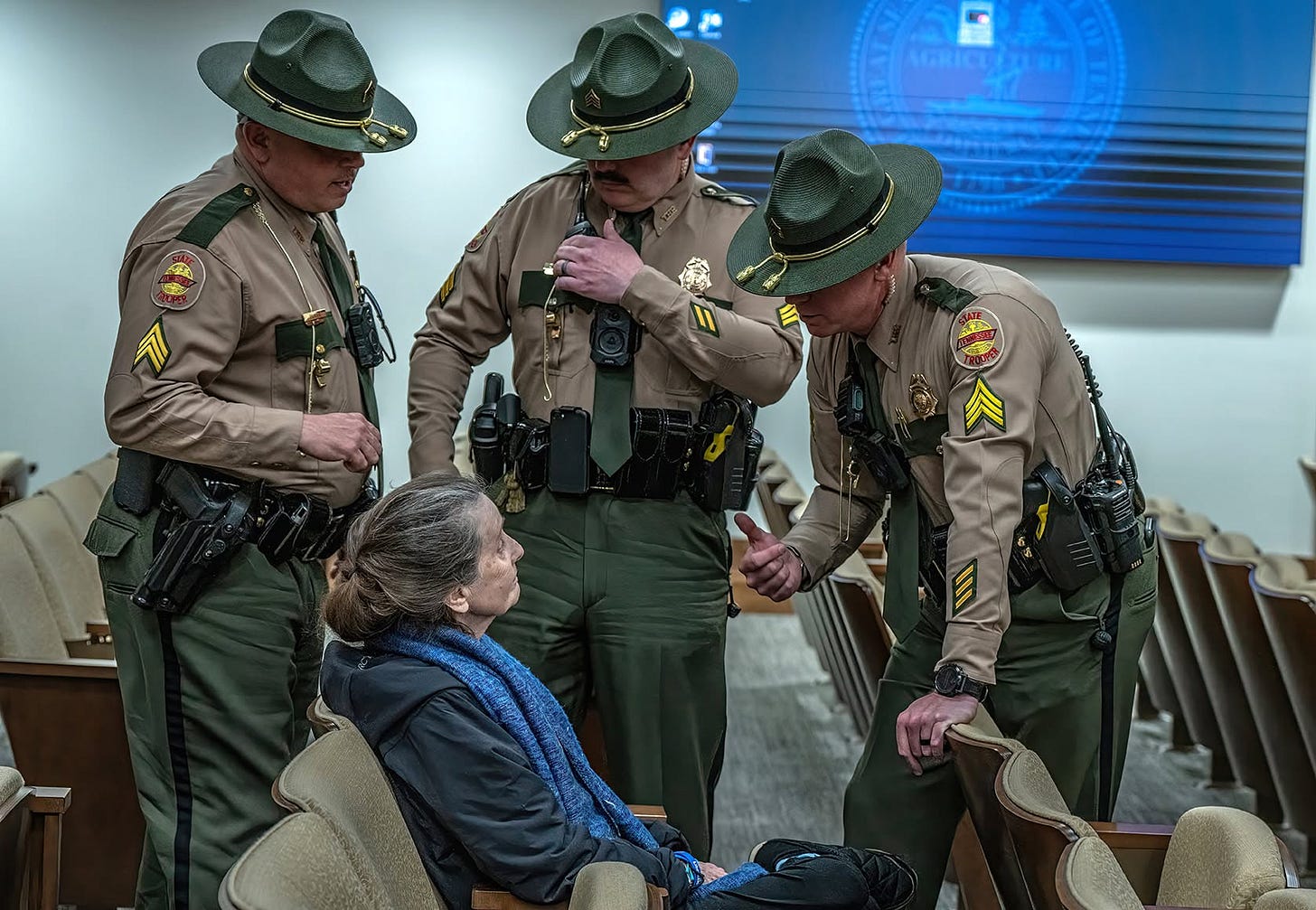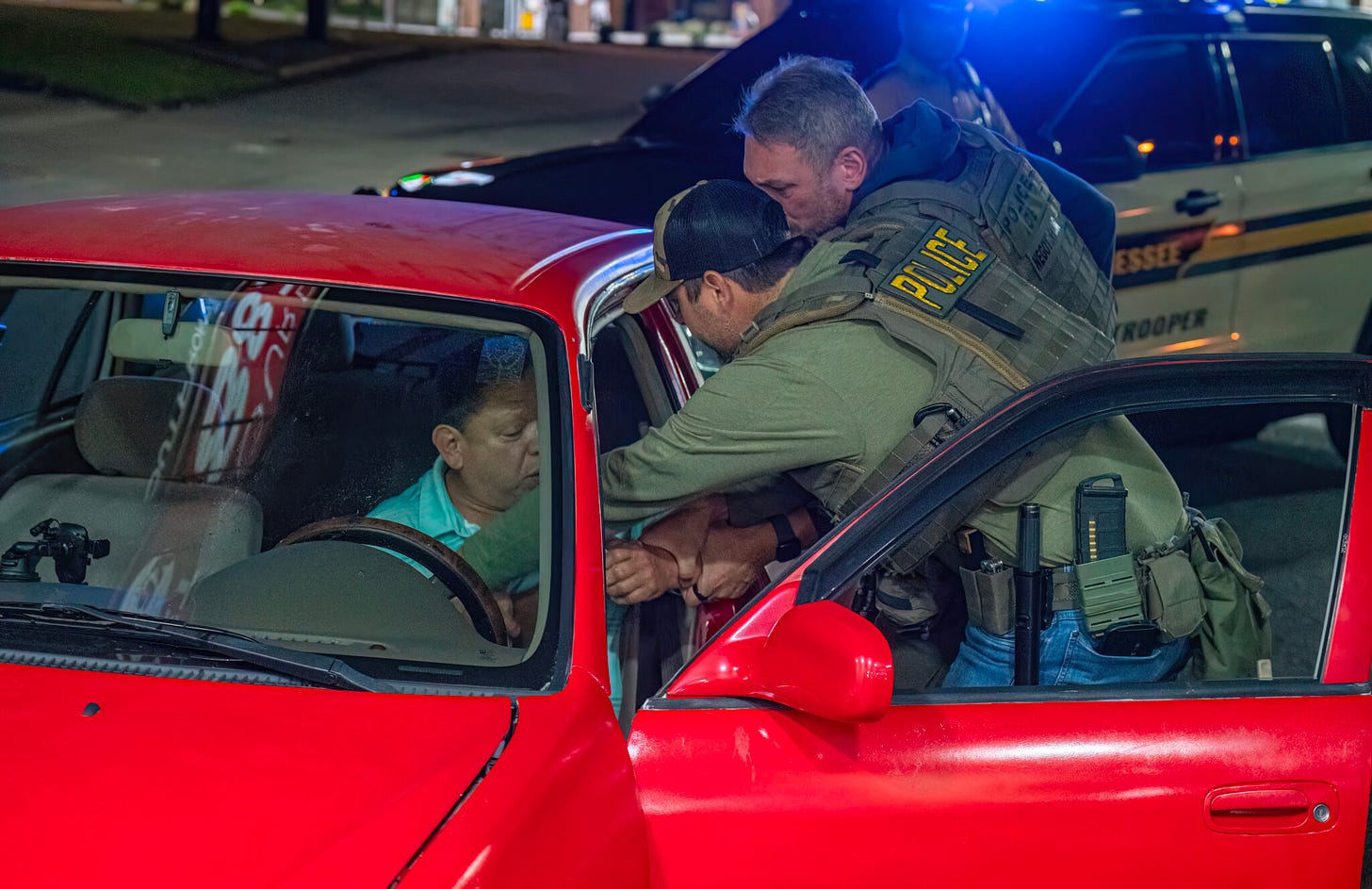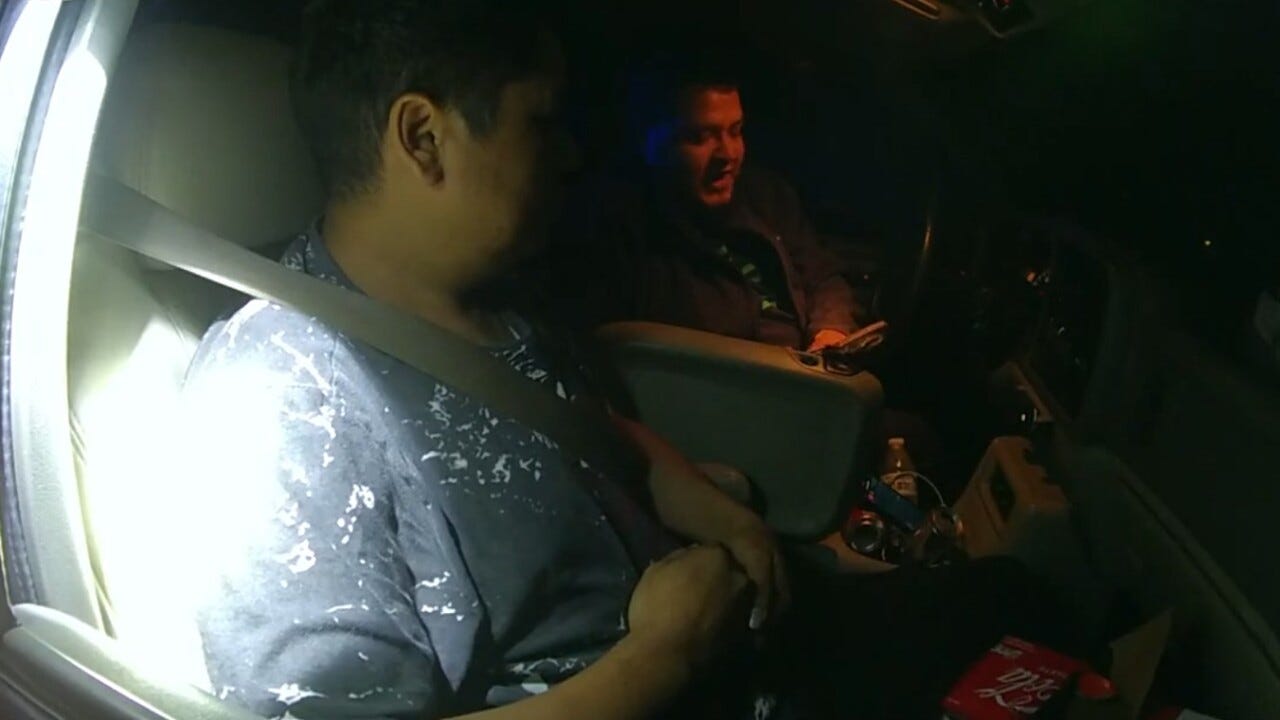Due Process
I met with a booking officer who told me my rights, offered me a public defender (I preferred to retain an attorney), told me I was released without bail, and gave me a court date.
This is a guest post by Lynne McFarland, pictured above, from Nashville, TN. While protesting a bill in committee at the Tennessee State House, the legislators sought to stop dissent and conversation by having the room cleared.
“During the Senate Finance Committee meeting Monday, lawmakers voted to pass a bill allowing schools to charge undocumented students tuition or refuse to enroll them if their parents can’t pay.
A small group of protesters attended the hearing, including 80-year-old Lynne McFarland. After the vote was held, the protestors disrupted the meeting, causing lawmakers to go into recess to clear the hearing chamber.” WSMV
Lynne refused to leave, saying the issue was far too important. She was subsequently arrested and reflects on her experience below.
What does due process look like?
I’ll tell you what due process looks like. I am the happy recipient of due process after I was arrested for a peaceful protest on April 1, 2025, at the Cordell Hull building at the State Capitol. I did not leave a committee hearing when the meeting was over. (I remained sitting in my chair toward the back of the room.)
Tennessee State Troopers came over to tell me that I would be arrested if I did not leave and I said that was fine. They carried me out (I refused to get up and walk with them) and took me to a Trooper vehicle and to the city jail for booking. They were professional and careful not to injure me in the process. When I got to the jail for booking, again everyone treated me professionally.
I met with a booking officer who told me my rights, offered me a public defender (I preferred to retain an attorney), told me I was released without bail, and gave me a court date. Because of my hearing problem, I was not able to use the free phones in the booking room to call someone so the booking officer called my daughter, and I told her I was arrested but that I was being released without bail and that friends from my nonviolent group would be waiting for me outside the jail.
Before the first court date, I received letters and phone calls from the Criminal Court and the Sheriff’s office reminding me of the date/time and giving me instructions regarding showing up. My lawyer was given my charges (disrupting a meeting and resisting arrest). At the first court hearing, my attorney stated that I had legal representation (many people there were to be assigned a public defender and they were waiting for that when he and I left the courtroom). I was given another court date.
Due process is not limited to citizens; it is the right of all persons in the US.
Let’s compare that to the people who were stopped and arrested during the hearts of ICE raids in Nashville in May. They were coming home from work or church, or pumping gas. They were not committing any crime so far as they knew. The TN State Troopers stopped them for alleged minor traffic infractions, which were then ignored, and ICE officers moved in and put them under arrest, taking them to the Homeland Security Offices on Brick Church Pike Park.
From there, they were bused to other locations, such as jails in other communities or out-of-state detention facilities. Family members were in the dark about what was happening to them. Many of the people detained were still not in contact with loved ones a week or so later.
Regarding the nearly 200 arrests, Steven Hale reported (Nashville Banner article of May 14), “as of late last week, community advocates had identified 62 of the people detained by ICE and were working to confirm more. ICE said Tuesday that “individuals who have final orders of removal, who returned to the United States illegally after being previously deported, are subject to immediate removal from the country.” The rest are “in ICE custody awaiting due process before an immigration judge or pending travel arrangements for removal.”
“Awaiting due process.” So if I had been subjected to the same procedures they were subjected to, here is how it would have gone: I would have been taken out the Cordell Hull hearing room, and either put in jail or driven away by bus, without charges, detained perhaps in another state without contact with family, and awaiting due process for now—what—weeks maybe?
And supposedly, in my case, I had committed some crime (by my peaceful protest) whereas these individuals had not committed a criminal action. Being in this country without papers btw is a civil, not a criminal offense.
Me: white female, charged with criminal offenses, excellent due process
Them: Latino, mostly males, mostly just immigration offenses (which are civil not criminal), lousy due process
While I am awaiting my court date, my life has pretty much gone on as usual. My family and my community have not suffered because I was arrested. But while the ones detained in the raids are awaiting “due process” their lives and the lives of their families, indeed of the whole community, are anything but normal.
Many families lost their main breadwinners. They live in fear of deportation. Trust in the community has been broken. Businesses have suffered. Work sites have suffered.
And now we hear, thanks to Channel 5’s Phil Williams (there’s always a Nashville connection it seems) about Kilmar Garcia’s being brought here for “due process” from a 2022 THP traffic stop. Thank you, Phil Williams, and thank you, Heather Cox Richardson for the follow-up.
As a non-violent practitioner, two things are fundamental values to me: we are all connected—as Dr. King said, we are tied in a single garment of destiny, we are community and we must learn to live like community. And two: each individual person has worth and dignity that should not be ignored.
It is interesting to me that this little legal phrase, “due process,” that I probably never gave much thought to, actually says a lot about both of these values (that we are community and we must acknowledge the dignity of each individual), and it turns out that one of the differences between a democratic republic and a police state is how we do due process.
We don’t want a police state, do we?
By Lynne McFarland, originally posted on her Facebook. Reposted here with her permission.
Photos 2025 by John Partipilo. Photo from Ch. 5 by THP 2022
The Narrative Gap, as coined by Lisa Sharon Harper, is the distance between the stories that we tell ourselves about ourselves, including how we got here and what it will take to make things right. In our world today, competing narratives vie for our loyalty, dividing society and the church, therefore making justice impossible. Our mission is help communities shrink the narrative gap, by identifying core issues and building community capacity so they might work toward common solutions for a just world. Here on the Freedom Road Substack, we can converse together on ways to shrink that narrative gap and help ensure everyones’ stories are told.
Connect
Freedom Road Instagram | Facebook | Threads | Website | Patreon | Podcast








